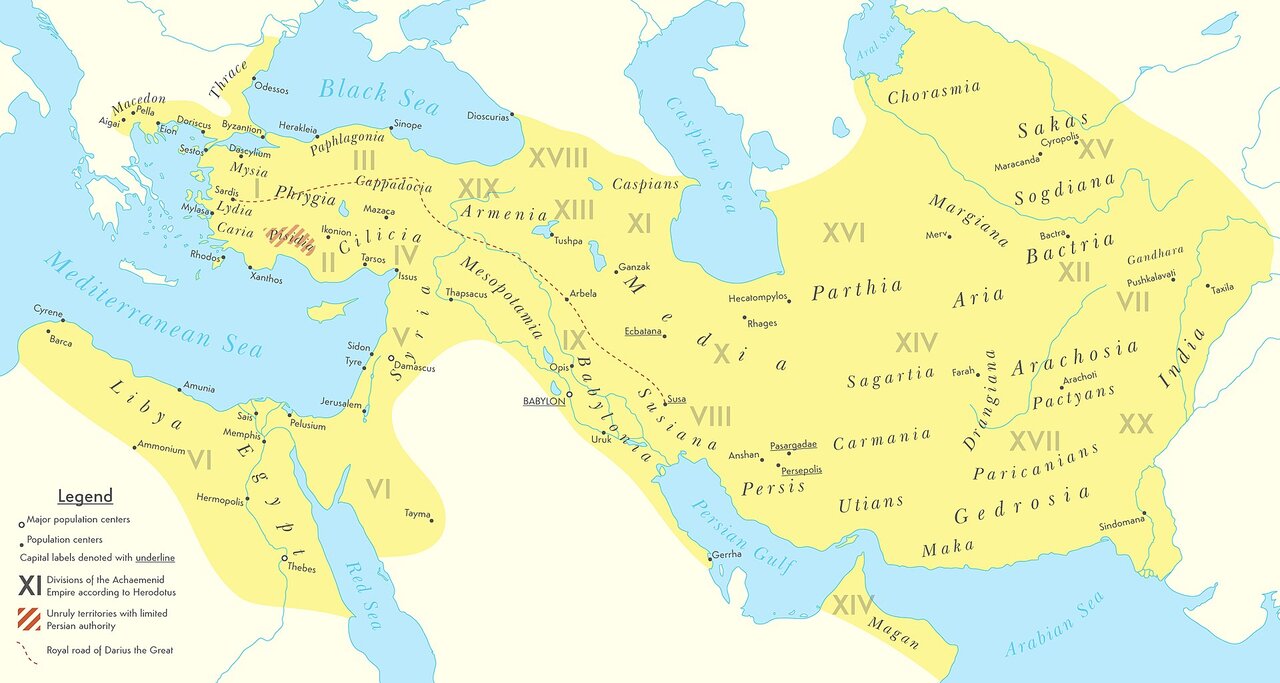Persian Achaemenid ruins among Gaza treasures ‘mostly destroyed’ by Israeli invasion

TEHRAN - A new report suggests that a site containing Persian Achaemenid ruins, among other archaeological discoveries dating back to the Iron Age, Roman, and Hellenistic eras, has been seriously harmed by Israeli actions in Gaza.
“One of Gaza’s most important archaeological sites has been largely destroyed by Israel’s invasion,” according to a new report by Forensic Architecture.
As mentioned by Forensic Architecture, the site was excavated between 1995 and 2005, which yielded an Iron Age rampart underneath Achaemenid period houses, Roman and Hellenistic-era structures, including an emporium, a tiled fountain on the coast, and a Byzantine cemetery in the north.
To reveal the extent of damage, the investigative organization used open source and satellite imagery to show that the site, located near the Al-Shati refugee camp, had been hit by bombings and then bulldozed and appeared to be a military camp.
The imagery also revealed the development of Israeli water pump infrastructure in and around the site, nominally aimed at flooding tunnels that the Zionist regime says are being used by Hamas in Gaza.
The destruction of the site was “a deliberate attempt to deprive resources indispensable for the survival of the Palestinian people in Gaza... [that] serves Israel’s colonial project, reinforcing its apartheid regime by erasing Palestinian identity, rights group Al-Haq said in a statement.
“Targeting cultural heritage is not an empty gesture. Culture constitutes a visible expression of human identity,” said the organization.
“Depriving people of their culture is tantamount to emptying them of the very substance that forms the backbone of their right to self-determination, especially in a context of cumulative, interconnected, and systemic human rights violations.”
Following Cyrus the Great’s conquest of Babylon in 539 BC, Palestine became part of the Persian Achaemenid Empire. At least five Persian provinces existed in the region: Yehud Medinata, Samaria, Gaza, Ashdod, and Ascalon.
In contrast to his predecessors, who controlled conquered populations using mass deportations, Cyrus issued a proclamation granting subjugated nations religious freedom.
In the late 330s BC, Alexander the Great conquered Palestine on his way to Egypt. The conquest was relatively uncomplicated, as Persian control of the region had already waned.
After Alexander died in 323 BC, his vast empire was divided between his generals, known as the Diadochi (“successors”), who fought each other for control over it.
The Ptolemaic era lasted to 201 BC and was, despite the numerous wars, a time of peace and prosperity for Palestine.
AFM
Leave a Comment